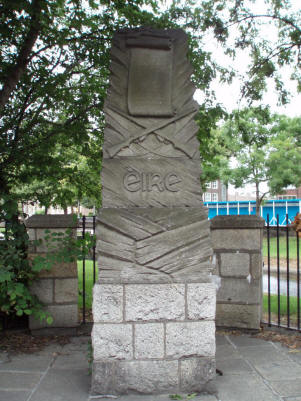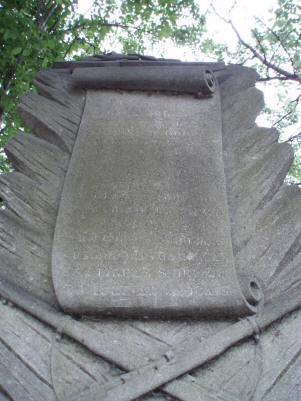
Mount Street Bridge |
|
 |
The battle of Mount Street Bridge was, as far as Republican Forces were concerned, the most successful action of the Rising. The officers and volunteers were an outpost of the Boland's Mills garrison, sent out to obstruct the passage of British troops from Dun Laoire to the centre of the city. Proof of their effectiveness can be seen from the following extracts taken from a British Military Communique issued by General Sir John Maxwell. It states: "Mount Street battle: At about 5.30 p.m. orders were received that the advance to Trinity College was to be pushed forward at all costs, and therefore at about 8.00 p.m. after careful arrange ments, the whole column, accompanied by bombing parties, attacked the schools and houses where the chief opposition lay. The battalions, charging in successive waves carried all before them, but I regret to say, suffered severe casualties in doing so. Four officers were killed and fourteen wounded and of the other ranks, 216 were killed and wounded... |
In view of the opposition met with, it was not considered advisable to push on to Trinity College that night, so at 11.00 p.m. the 5th South Staffordshire Regiment, from the 176th Infantry Brigade, reinforced this column and by occupying the positions gained, allowed the two battalions, Sherwood Foresters, to be concentrated at Ballsbridge."
| The Volunteers who opposed these troops fought for four days and nights; some of them without food or sleep, holding red-hot guns in their hands. They never thought of surrender. The Parochial Hall was the first post to be overwhelmed. The men ran short of ammunition and attempted to escape but were intercepted and taken prisoner. Clanwilliam House ended as a blazing inferno and here three Volunteers gave their lives for Ireland, Patrick Doyle of Milltown, Richard Murphy of Dublin and George Reynolds, also a Dublin man and the officer-in-charge. Their bodies were never recovered for they were burned to ashes. Lieut. Malone was also killed at 25, Northumberland Road. The Republican forces surrendered on Saturday afternoon, April 30th. Pearse handed his sword to General Lowe at the Parnell Monument. The surrender was decided upon in order to save the lives of unarmed citizens and to save Dublin from total ruin. Before the Rising, Connolly had declared that the British would never dare to level Dublin, Now, after the shelling of the G.P.O. and Liberty Hall, both he and Pearse realised that not only would they level Dublin but they would kill at will rather than face a long contest in the midst of a World War. There were many fatal casualties on both sides but the end was not yet. The War of Independence and four years of warfare were to add many more names to the Roll of Honour. |
 |